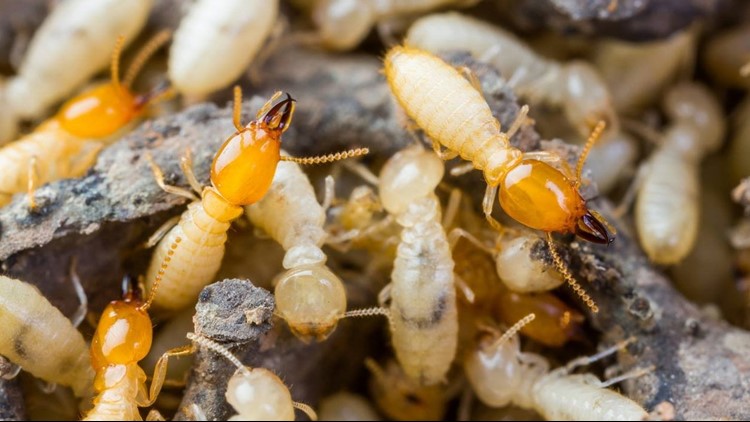Termites do more damage to homes than fires and storms combined, but the damage is rarely covered by homeowner’s insurance since it's considered "preventable" through proper termite protection.
Atlanta-based Arrow Exterminators has put together a list of possible warning signs of a termite infestation:
- Termite wings which are thin, papery wings and typically found near window sills or floors.
- Mud tubes built by termites to connect them from the soil to their food source.
- Distorted areas of paint or wood surfaces which appear “bubbled” or cracked.
- Hollow-sounding wood
- Frass or termite droppings is a sign of drywood termites and has a hard, gritty feel to it.
Spring can be a tough time for termites.
When temperatures warm, reproductive termites swarm from an existing colony to create a new one in a different location.
Swarms are often the first time a homeowner becomes aware of a potential infestation
“Once a termite infestation begins, the damage can occur very quickly so it’s imperative that homeowners get an inspection early in the season,” says Charlie Jones, Arrow Pest Expert.
Here are some ways to prevent an infestation in the first place:
- Eliminate moisture around foundations. Also, divert water from the house by using proper downspouts and gutters because termites are attracted to moisture.
- Avoid stacking firewood or lumber near home. Termites can burrow into the woodpile and then right into the home.
- Remove old tree stumps in the yard.
- Keep tree branches and shrubbery well-trimmed and away from the house which will also help with inspections and finding termite infestations. Additionally, avoid excess piles of mulch since this is a favorite food source for termites.
- Reduce humidity in crawl spaces with proper ventilation.
- Have your home inspected annually by a licensed pest professional who specializes in termite control. If you have termite protection, it is important to maintain your coverage and renew annually.



